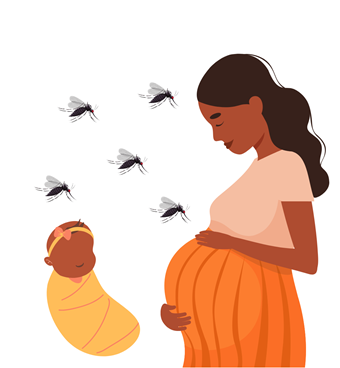Congenital disorders
EPI-WIN webinar: Zika virus: learning from the past, preparing for the future
Outbreaks of Zika virus disease have been noted
since 2007; however, the unprecedented epidemics in the Western Pacific
and then the region of the Americas have highlighted the significant
public impact of this virus, notably through causation of congenital
microcephaly and neurodevelopmental disorders after infection in
pregnancy, increased Guillain-Barré syndrome and other neurological
manifestations. This resulted in the declaration by the World Health
Organization (WHO) of a Public Health Emergency of International Concern
(PHEIC) from February to November 2016. Cases of Zika virus disease
globally declined from 2017 onwards; however, Zika virus transmission
has been detected in 89 countries and persists at low levels with
intermittent incidence increases in several countries in the Americas
and in other endemic regions.
It is critical to determine where
the public health and clinical communities stand on the synthesis of
data gathered during and after the PHEIC, how transmission should be
tracked epidemiologically with a view to preparedness and early
response, and what tools we have at our disposal as countermeasures
against infection, transmission, and disease.
This webinar will
give an overview of the current global Zika situation and the speakers
will discuss the latest evidence available and lessons learned from the
PHEIC that are key for preparedness.
Interpretation service will be available in Spanish, Portuguese, Arabic and French during the webinar.
Speakers:
- Dr Sylvie Briand, Director, Epidemic and Pandemic Preparedness and Prevention, WHO
- Dr Maria Van Kerkhove, Unit Head, Emerging Diseases and Zoonoses Unit, WHO
- Dr Diana Rojas Alvarez, Technical Lead, Zika and chikungunya, Emerging Diseases and Zoonoses Unit, WHO
- Dr Sudath Samaraweera, Regional Consultant on Arbovirus, WHO Regional Office for South-East Asia
- Dr Judith Wong, Director, Microbiology and Molecular Epidemiology, National Environment Agency, Singapore
- Ms Thais Dos Santos, Advisor on Surveillance and Control of Arboviral Diseases Neglected, Tropical and Vector-Borne Diseases Unit,
Pan-American Health Organization - Dr Ricardo Ximenes, Epidemiologist and Professor of Tropical Medicine, Federal University of Pernambuco, Recife, Brazil
Q&A:
Participants will be able to submit questions during the webinar by using Zoom’s “Q&A” feature. You may also submit them in advance by sending them to [email protected].

